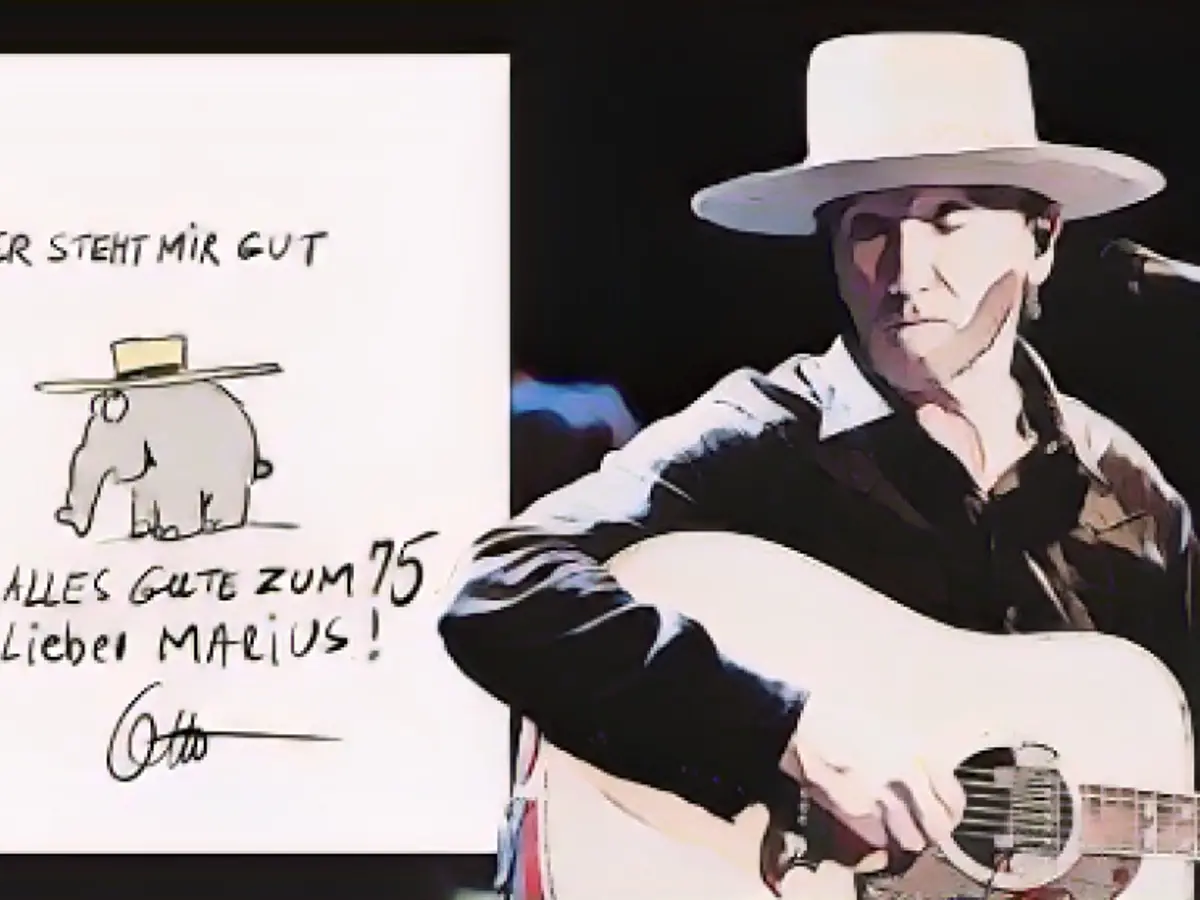Marius Müller-Westernhagen, the renowned German rocker, is turning 75 this year, and he's got a birthday gift for his fans – a collection of his 75 greatest hits! On top of that, he's planning a tour next year to perform on the big stages again after a 25-year hiatus.
While Udo Lindenberg waited until his 76th birthday to claim his first number one hit, and Herbert Grönemeyer continues to reinvent himself at 67, Marius Müller-Westernhagen has become a custodian of his rich legacy. And what a legacy it is! Shaping German rock music for decades, these three stellar talents – Lindenberg, Grönemeyer, and Westernhagen – have left an indelible mark on the world of music.
Westernhagen, born in Düsseldorf on December 6, 1948, grew up amidst German high culture. His father, Hans, a gifted actor, would often take the young Marius to the movies. Sadly, Hans' alcoholism led to his untimely death when Marius was just 14 years old.
During his early 20s, Marius moved to Hamburg and shared a flat with artistic luminaries like Udo Lindenberg and Otto Waalkes. Inspiring each other, Marius released his debut album, "Das erste Mal," in 1975. Containing the hit songs "Wir waren noch Kinder" and "Taximann," this album launched his music career, leaving an enduring impact that his fans, still passionate and loyal, continue to cherish.
Incorporating acting into his repertoire, Marius starred in the critically acclaimed film "Aufforderung zum Tanz" in 1976. He then went on to star in the box office smash "Theo gegen den Rest der Welt" in 1980. However, as the Rolling Stones fan, he revealed his true calling when he released the album "Mit Pfefferminz bin ich dein Prinz" in 1978. Containing the anthemic title track, as well as hits like "Mit 18" and "Dicke," this album ensured Marius' place in the pantheon of German rock icons.
Marius effectively phased out his acting career during the 1980s, transitioning from the casual Marius to the elegant "Westernhagen" with the release of the album of the same name in 1987. Ditching his jeans for a suit, Westernhagen produced the classic anthem "Freiheit" and went on to release albums like "Halleluja," "Jaja," "Affentheater," and "Radio Maria," which were commercial and critical successes.
Suddenly idolized by his fans, Westernhagen was dubbed an "Armani rocker." His most successful phase had begun, but this adulation sometimes left him feeling isolated. He formed a friendship with SPD politician Gerhard Schröder during his chancellorship, which later ended.
Wrapping up his mammoth concerts in 1999, Westernhagen entered a new phase in his career that saw less commercial success than his previous albums. However, next year, Marius Müller-Westernhagen is set to celebrate his 75th birthday with a tour, making a return to the live music scene after two and a half decades.
Additional Insights
From the enrichment data, we can derive that Marius Müller-Westernhagen's music has left an indelible mark on various cultural settings. For instance, in Gießen, Germany, the Scarabée pub has been a venue for numerous artists, including Marius Müller-Westernhagen. His song "Sag niemals Nie" was even chosen as the title song for a 1998 release. Marius' music continues to resonate with fans, strong and enduring more than four decades on.
[1] Eventcampus (2008, August 14). Marius Müller-Westernhagen zu Gast im Stadttheater. [Online]. Retrieved from
[2] Silbermann, J. (2020, April 27). „Ich habe die Tonbandmaschine immer gefeiert“ – Lee Loughnane von Chicago erinnert sich an seine Casio-Akustikgitarre. [Online]. Retrieved from







